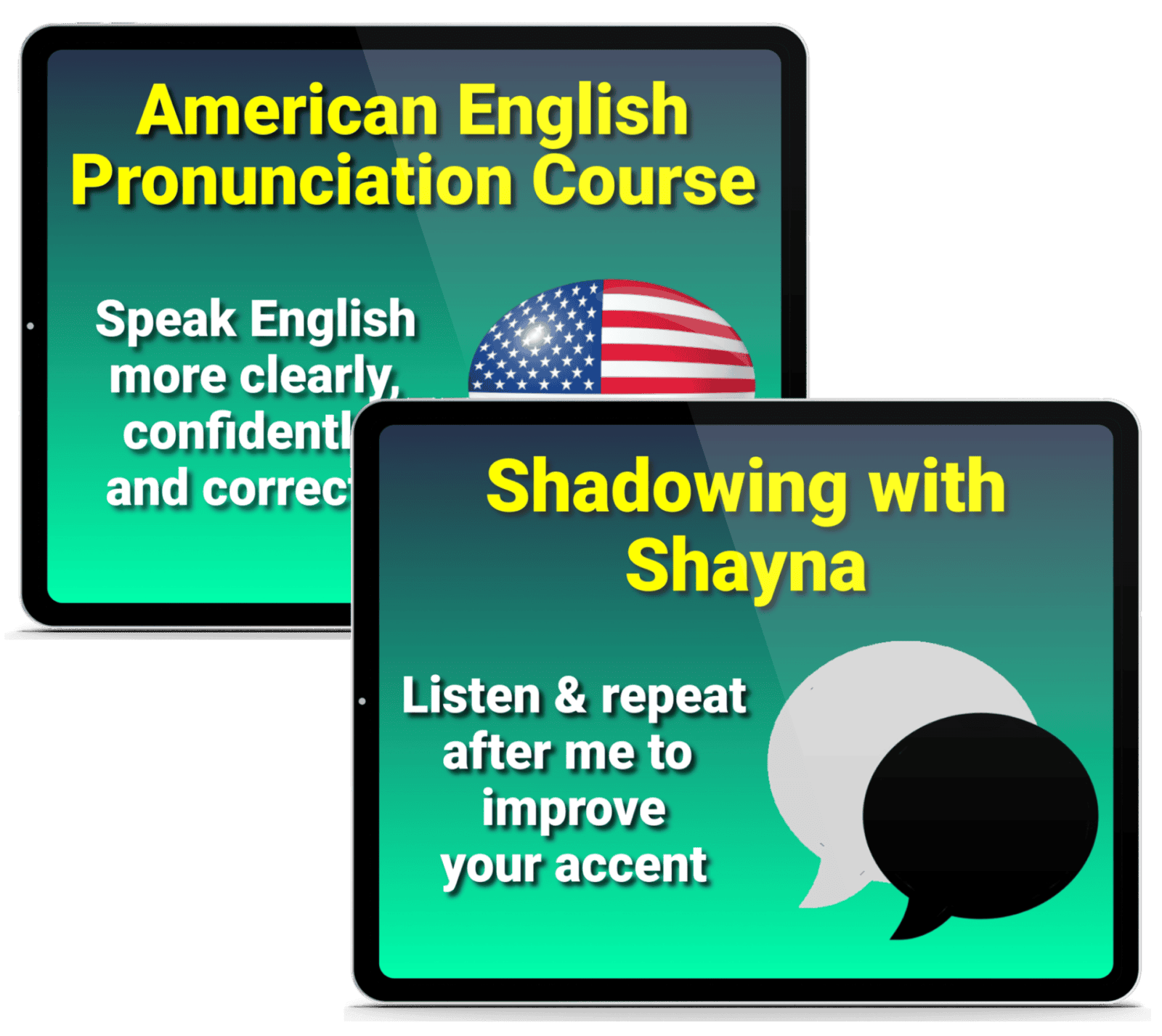
Today you’re going to learn how to pronounce 12 special words ending in -E.
You probably know that when we have an English word ending with -E, the final -E is usually silent; we don’t pronounce it. Like in the words date, cheese, fine, spoke, and rude: these words all end with a silent -E.
But there are a few exceptions, and that’s what we’ll work on in today’s lesson: words that end with -E that is NOT silent. Many of these words came into English from other languages and so they don’t follow the typical trend of a silent E at the end.
You can repeat each of these words ending in -E after me, and then I’ll briefly explain what it means.
recipe
A recipe is a plan for making food – the recipe tells you the ingredients and the steps to follow in order to cook and prepare the dish.

apostrophe
This punctuation mark is called an apostrophe. In English we use it for short forms, like can’t, I’ve, and she’s, as well as for possessives like John’s and Sarah’s.
catastrophe
A catastrophe is a very big disaster – this can be an accident like an explosion at a power plant that kills a lot of people. It can also refer to a huge failure. If you implement a business plan but instead of resulting in growth, it causes the company to lose a ton of money, that would be a catastrophe.
acne
Acne refers to a skin problem when someone has pimples – those are small irritated bumps – typically on their face. Acne is usually caused by oily skin and by hormones, so it’s especially common among teenagers.

epitome
Epitome is a noun meaning a perfect example or a perfect representation of a particular quality or trait. Let’s say you have a roommate who just sits on the couch all day playing video games. He never takes initiative, he never helps around the house, and he never wants to do anything. You could say “My roommate is the epitome of laziness” – he’s the perfect example representing the quality of laziness.
karate
This is a Japanese martial art involving kicks and punches, and the English pronunciation of its name is karate.
sesame
Sesame is a plant that is best known for its small seeds, which are used in cooking. They look like this.

posse
Historically, the word posse was originally used for a group of people called together by the sheriff to help catch a criminal or maintain the peace. But nowadays it’s not used with that meaning anymore; instead it has become an informal slang word for any group of friends or associates.
vigilante
A vigilante is someone who is not actually part of the police or law enforcement, but on their own initiative they go after criminals and try to punish them. In some areas where there is not a strong police presence or a solid criminal justice system, it’s common to have vigilantes, regular people who take it upon themselves to administer the law and punish criminals.

Now in those 7 words we just practiced, the final -E sounded like EE: recipe, posse, sesame.
But in the next 3 words, the final -E sounds like “A.”
cliché
This word is from French, and in English we still write it with an accent on the final “e.” A cliché is an expression or idea that is used so frequently that it loses its power and becomes kind of superficial.
For example, the saying “Absence makes the heart grow fonder” – it means that when you’re away from someone for a long time, your love for them grows stronger. But the expression has been used so much that it now sounds shallow and not very meaningful.
fiancé / fiancée
Two more words that end in the “A” sound are fiancé and fiancée. These words refer to a person who we are engaged to marry. We have made a promise to marry this person. Fiancé with one e at the end is a man, and fiancée with two Es at the end is a woman.

résumé
A résumé is a list and brief description of your work and educational experience. When applying for a job, you would typically send a copy of your résumé to show the company your qualifications and your past jobs.
There you have it, 12 words where the final E is NOT silent.
Let’s practice them all one more time:
- recipe
- apostrophe
- catastrophe
- acne
- epitome
- karate
- sesame
- posse
- vigilante
- cliché
- fiancé
- résumé
Again, remember that MOST of the English words with -E at the end have a silent -E. These words are exceptions. Can you think of any more words that end with -E?
I know that English pronunciation can be SO confusing with all these exceptions to the rules!
If you want to improve your pronunciation fast, come join my American English Pronunciation Course.
Inside it, we’ll do lots of practice so that you can master the sounds of the language and say them clearly. And when you can pronounce things clearly, you’ll be able to speak English more confidently.
Well, I hope you’ve enjoyed this lesson and learned something new! Thanks for watching and I’ll talk to you next week.
More pronunciation practice:

